Devil in lack of detail for Labor and the voice referendum
This was the week when Anthony Albanese might have undermined his own tilt at historic political reform.
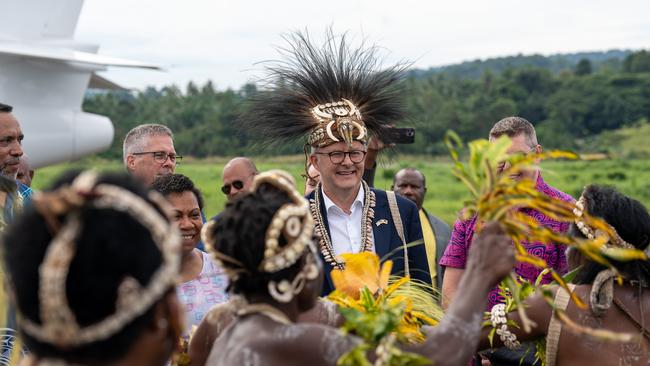
The voice proposal is supposed to be top of the agenda for Albanese and his Minister for Indigenous Australians, Linda Burney. But they have put the cart before the horse, trumpeting the merits of a significant constitutional change before making the case for it in a practical way that can reassure mainstream voters.
The endeavour is still salvageable, but Albanese and Burney will need to refocus and show the strong leadership and advocacy required to win a referendum – perhaps the most difficult test in our democratic system. They have been far too passive and complacent so far, expecting the zeitgeist to carry their proposal.
Major opinion polls continue to show popular goodwill towards the notion of a voice, with close to two-thirds of people supporting the idea. But political reality and lived experience guarantee the vote will be tighter when the proposition is put to the ballot box, and opponents are given more attention.
Instead of entrusting voters with this complex aspiration, Albanese and Burney have deliberately sought to keep the discussion focused on a vague but high-minded proposition for as long as possible. They want the “vibe of the thing” to overwhelm the questions of detail and consequence that are bound to arise.
Albanese’s swagger dissolved this week in an interview with me on Sky News and a follow-up on 2GB. The Prime Minister was fully aware of my support for a voice and role in the co-design process under the previous government, but when I suggested Peter Dutton might be right about voters deserving more detail on how Labor intended to construct a voice, he played for time saying there would be more detail at some unspecified point in the future: “Those details, in terms of broad principles, will be out there for all to see, Chris.”
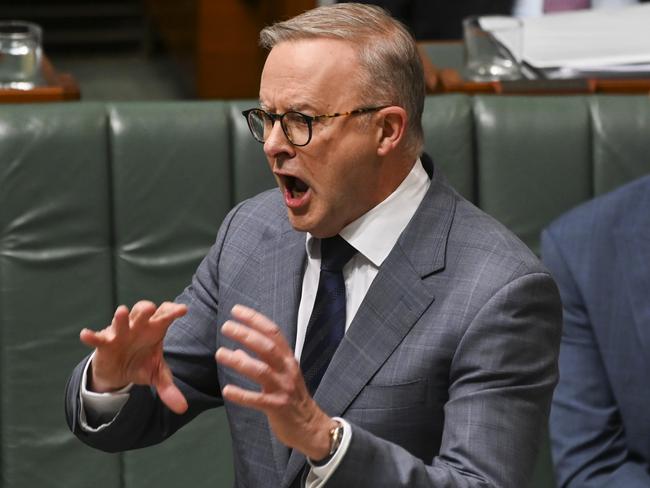
Given the federal government already has the power to legislate on Indigenous affairs, I asked the Prime Minister whether, in the event of the referendum failing, he might proceed to legislate a voice regardless. He refused to say, one way or the other.
This immediately seemed to be a mistake – surely he needed to promise he would abide by the wishes of the voters. The next morning Ben Fordham took up the point on 2GB and again Albanese dissembled.
To be sure, this is a tricky area for voice proponents because a voice could be legislated tomorrow. But if you want this device enshrined in the Constitution to ensure Indigenous Australians are recognised in the document, and that all governments must hear their advice, then surely you must accept that the failure of such a referendum would rule out even a legislated voice for some time to come. The will of the people must count for something. Otherwise the referendum is a farce.
Fordham also took up the issue of detail, doggedly, and got very little.
On one point, he demanded to know if voice members would be paid. Albanese said that this has not been suggested, but the co-design report that Labor broadly has endorsed, made clear the voice co-chairs would be paid a full-time salary, insinuating other part-time members would also be paid.
It was a mess. Interviews like this create a vacuum, allowing opponents to make merry hell with every possible aspect of a voice because Albanese refuses to outline any key details.
Albanese and Burney need to engage in some of the detail and be prepared to debate it. They should already have done the hard work of nailing down their preferred voice model, and need to respect voters by sharing it publicly.
This is such a difficult reform proposal that even the debate about detail is not straightforward. Because certainly the most important detail has already been outlined by Albanese – the proposed wording for the constitutional amendment.
There is a reasonable debate to be had by constitutional lawyers and others about whether it is foolproof, or whether it could be improved. But in the main, it appears to be a neat formulation to mandate a voice without being too prescriptive.
Albanese, Burney and constitutional lawyers such as Professor Anne Twomey are right to say any government could legislate a voice of any kind under such an amendment – that is legally, politically and constitutionally undeniable. But in the real world of day-to-day and referendum politics, voters need to know what a legislated voice under Labor would look like.
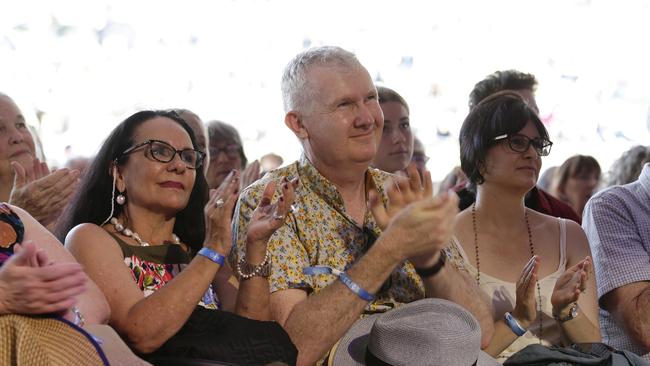
If the Albanese government saw the referendum pass, what kind of a voice would they formulate? Or to put it the other way round, if the government wants voters to impose a constitutional obligation on them to legislate a voice, surely it must tell voters what shape that voice would likely take.
Dutton has suggested Labor might proffer a draft bill. Fair enough, although that could trigger a forensic and deliberately obstructive debate about every line. More practically, Albanese and Burney ought to outline broad principles about how a voice would be legislated, with the final say resting, of course, with the whims of the parliament.
As I have always argued, there is plenty of detail available in the co-design report, for those interested. But even that report contains many options; it is unlikely any government would accept it holus-bolus.
So it is incumbent upon Labor to outline in reasonable detail how it would construct a voice. Perhaps it should even offer to negotiate aspects with the opposition.
Either way, we should not go to the referendum without a broad-brush outline of how a voice would likely be legislated. The absence of a model would generate understandable scepticism from voters.
When you have learned to be highly sceptical of progressive politics and the way they tend to invest emotional attachment in issues rather than applying rational detachment, it can be uncomfortable to agree with them on a particular cause. I have advocated for an Indigenous voice over the past seven years or more, initially thinking it was a deft, practical step on the path to reconciliation and Closing the Gap that might struggle to win sufficient Indigenous buy-in, let alone broader support.
It is an idea that grew from collaboration between constitutional conservatives and committed centrists. But since the surprising and hard-won Indigenous consensus of the Uluru Statement from the Heart, it has become a cause celebre of the left.
Suddenly, the careful arguments I and others had been making for years were subsumed by emotive appeals and Twitter-level sloganeering. Instead of engaging in explanation, many proponents just claim that those reluctant to get on board must be foolish, or bigoted.
The voice now is often framed as a moral cause (as the left is wont to do) rather than a rational or practical one, so that, in their eyes, robust debate is unnecessary and opponents can be demonised. People I respect on both sides of this debate have been drawn into bitter disagreement; it is a difficult time.
Opponents are decried as “punching down” on Indigenous people, and proponents are accused of seeking to impose “apartheid” on this nation. The truth is that we are discussing a proposal – long and broad in the making – to recognise Indigenous people in the Constitution through a practical mechanism that allows them to offer advice to government on matters affecting them.
It is that simple. It should not be divisive, there are no special privileges, it aims to improve the whole nation.
We have not done so well at eradicating Indigenous disadvantage that we can afford to continue on current settings. Certainly, there is potential for the voice to be politicised, distracted, ineffective and bureaucratic – just like every other representative body, including our parliaments.
But there is also enormous potential for it to give voice to grassroots concerns, ideas and solutions. Besides, it is only reasonable and logical that the descendants of our original inhabitants should get to offer a view on issues affecting them – that is what we might call a fair go.
Dutton has played the issue wisely, given his internal considerations. In his tent he has a conservative wing antagonistic to the voice, a moderate wing supportive, and a Coalition partner that has been lured into premature rejection. So, the Opposition Leader continues to hold back, putting the onus on Labor to detail its plans and make its arguments.
Effective advocacy from Labor might have forced the Liberals to engage, support a voice, or at least give their members free rein.
Instead, a Prime Minister who set expectations high and injected a risky partisan element into the issue by putting it front and centre on election night – “I commit to the Uluru Statement from the Heart in full” – now fudges.
He talks about sporting organisations and corporations joining the campaign as if pontification from the elites can do the heavy lifting for him.
Meanwhile, businesses that want to support a Yes campaign cannot find one to work with. And the ABC uses taxpayers’ money to demonise Advance Australia because it dares to run a No campaign.
It is almost as if the institutional left wants to make it as hard as possible for mainstream voters to support this constitutional change. As the year progresses, and the Albanese government is overwhelmed by other problems, such as the ongoing energy and cost of living crises, it might lose voters’ trust on the voice.
That election night declaration has enabled conservative critics to label it “Labor’s voice”, which distorts reality and undermines the campaign. Along with the constant overreach of identity politics, this makes the environment increasingly difficult for what should be a hopeful and practical reform.
There can be no doubt that the strongest voice so far in the voice debate has been voice opponent Jacinta Nampijinpa Price. Where are the strong, available and aware voices on the proponent side?



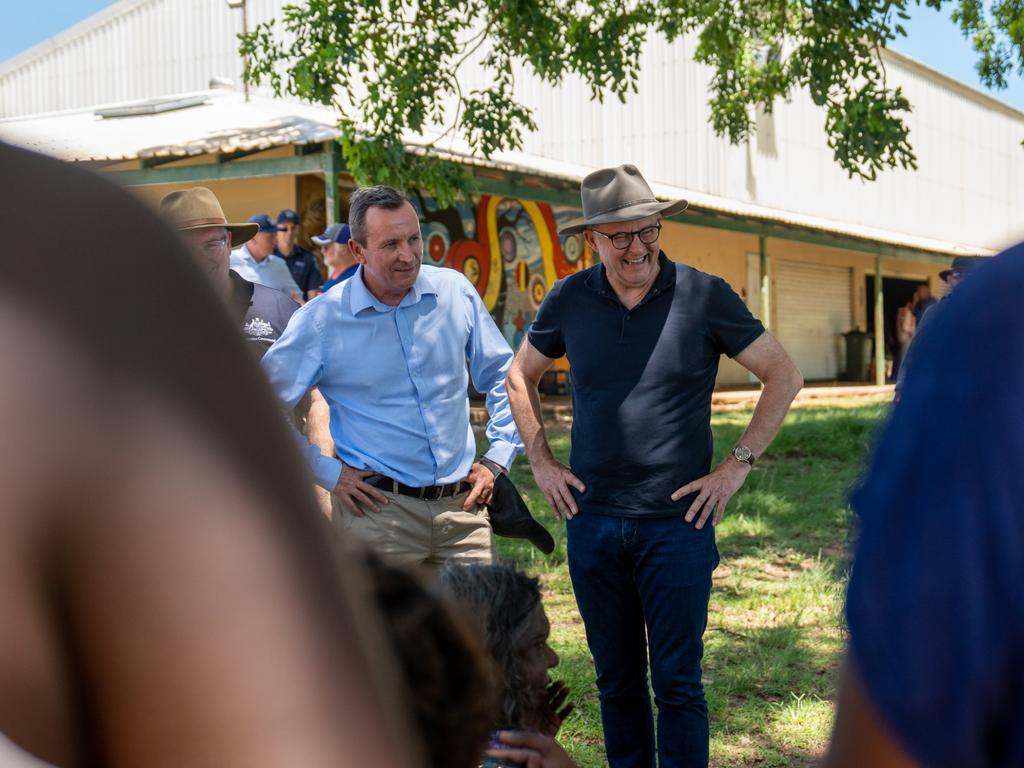
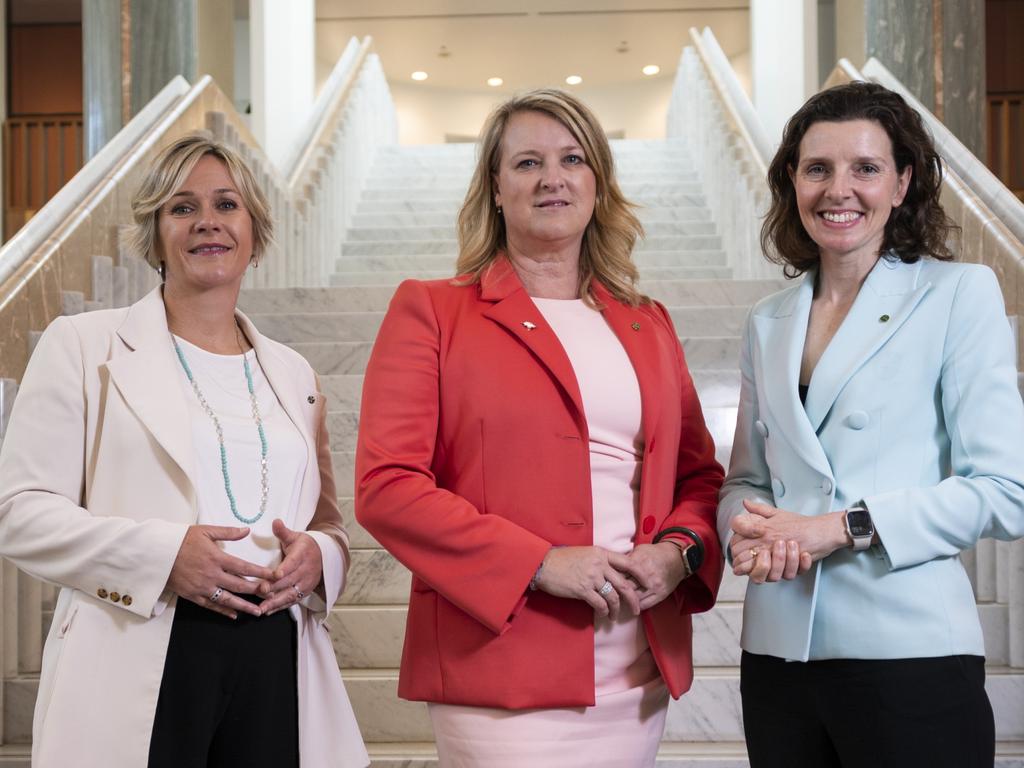

This was the week when Anthony Albanese might have undermined his own tilt at historic political reform. The Prime Minister’s inability or unwillingness to engage in detailed advocacy for the Indigenous voice runs the risk of insulting voters, triggering second thoughts among supporters, and providing endless fodder for opponents.